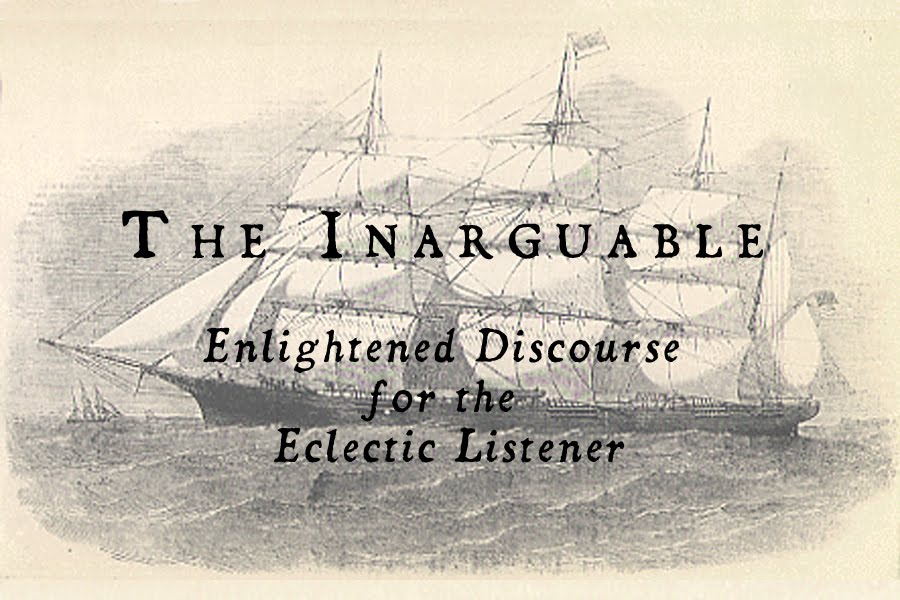I'll never forget the first time I heard Quebecois duo Gris's Il Était Une Forêt... shortly after its initial release in 2007. An hour-long slab of sheer grey despondency, made instantly memorable by its simultaneous dichotomy of uplifting beauty and harsh despair, no doubt a reflection of the black and white mix which constitutes their name, meaning "grey" in French. Though it met near-universal praise, the "over the top" nature of Il Était Une Forêt... met its challengers due to its excessively acid guitar tone and almost inhuman vocal performance; a disconsolate wail cast off in the distance, the sounds of a man desperate, standing at the precipice and contemplating the end, watching the setting sun. To a then seventeen-year-old Jon, this was something completely new. Yes, I was a big "depressive black metal" fan at the time, reveling in Xasthur and Silencer as every angsty teenager is wont to do, and yet there was something much more human and relatable found within Gris's music, much moreso than the endless stream of scar tissue-touting "suicidal selfies" which plagued black metal at the time. Gris wasn't suicidal, no. Gris wasn't sure and carefully weighed their options over the course of their debut (under the Gris name, having previously operated under the Niflheim moniker), which made Il Était Une Forêt... much more meaningful. When was I going to hear more Gris? The world patiently awaited Neptune and Icare's potentially devastating return...
...I just don't know if we expected anything this incredible. Their first album in almost six years, À l'Âme Enflammée, l'Äme Constellée... bears the mark of true artistry. The product of almost five years of nonstop composing, editing, and self-reflection, Gris presents us, their loyal listeners, with over eighty minutes of forward-thinking black metal, pushing the envelope further than their previous efforts and completely solidifying Gris's place in the higher pantheon of black metal art. Bringing forth the Romantic-era classical and folk influences found on previous album closer "La Dryade," here we see Neptune and Icare operating as a small chamber ensemble, with nary a moment going by without dense violin, piano, and cello textures beneath the nearly endless (and now much less harsh) layers of guitar and bass. Of course, this is where most "symphonic" bands fall flat, often losing themselves in endless waves of harmony and diluting the power only minimalism can bring, and yet Gris demonstrates a keen ear for composing, making sure one element does not impose on the other; everything is in its place and there need not be any more. There is a logical stopping point, which most musicians tend to ignore, but Neptune and Icare's almost masterful approach to composition and arrangement goes unparalleled.
Based around four 11+ centerpiece tracks, À l'Âme Enflammée, l'Äme Constellée... ebbs and flows much like the emotional balance between happiness and depression which Gris openly embraces, with magnificent, uplifting grandeur acting as a foil to the pitch black void to which we've come to expect from these masters of despondency. Spread across two discs, Gris managed to write this album in such a way that the time is spread evenly and symmetrically across each half, making what is initially an intimidating listen much easier to digest. Yes, eighty minutes is quite the cross to bear in such a fast-paced world (though most Gris fans wouldn't mind), and yet, somehow, taking it in two forty-minute chunks seems to make the time flow with ease.
Aside from the addition of orchestral textures, perhaps Gris's most striking change over the past five years is Icare's vocal performance. What was once an inhuman howl as since scaled back, with Icare exploring other vocal styles, working at various levels to flow with the music's ever-shifting emotional content. Mostly based around a desperate rasp, it is not until Icare begins to bellow in contrast to, say, one of the album's many folk/chamber movements that one really begins to hear the sheer desperation in this man's voice. Much like on Il Était Une Forêt..., Icare manages to avoid the usual "black metal frontman" sort of mentality, instead using his voice like another instrument, never imposing, acting as yet another vehicle for emotional expression, screaming into the void. A genuine display of real, human suffering.
Stream "Une Épitaphe de Suie" below:
Penultimate track "Une Épitaphe de Suie" ("An Epitaph of Soot" - streaming above) is a prime example of Gris's strong grasp on the dichotomy between power and restraint. Alternating between beautiful, progressive folk sections and massive, complex black metal, the near-fourteen minute-long song passes in an instant, a powerhouse of harmonic interplay, haunting melody, and Icare's unique, emotive voice. Echoes of Neptune and Icare's one-off collaboration with Sombres Forets mainman Annatar, the dense, shoegaze-inspired Miserere Luminis, shines through with a skyward gaze, bringing contemplative post-rock sensibilities to the fold. Featuring some of the album's most intricate basswork, the balance between melody and rhythm makes the album's final "epic-length" song its most memorable, though every moment of À l'Âme Enflammée, l'Äme Constellée... will etch itself into your flesh forever.
I could wax poetic over À l'Âme Enflammée, l'Äme Constellée... for days, weeks even. It's not very often where an album hits me quite like this one, and, while no album is perfect, Gris certainly approaches perfection with their "third" effort. Please, take it upon yourself to listen through this album at least once, even if you approach such a monster with apprehension. It's worth it.
-Jon


No comments:
Post a Comment